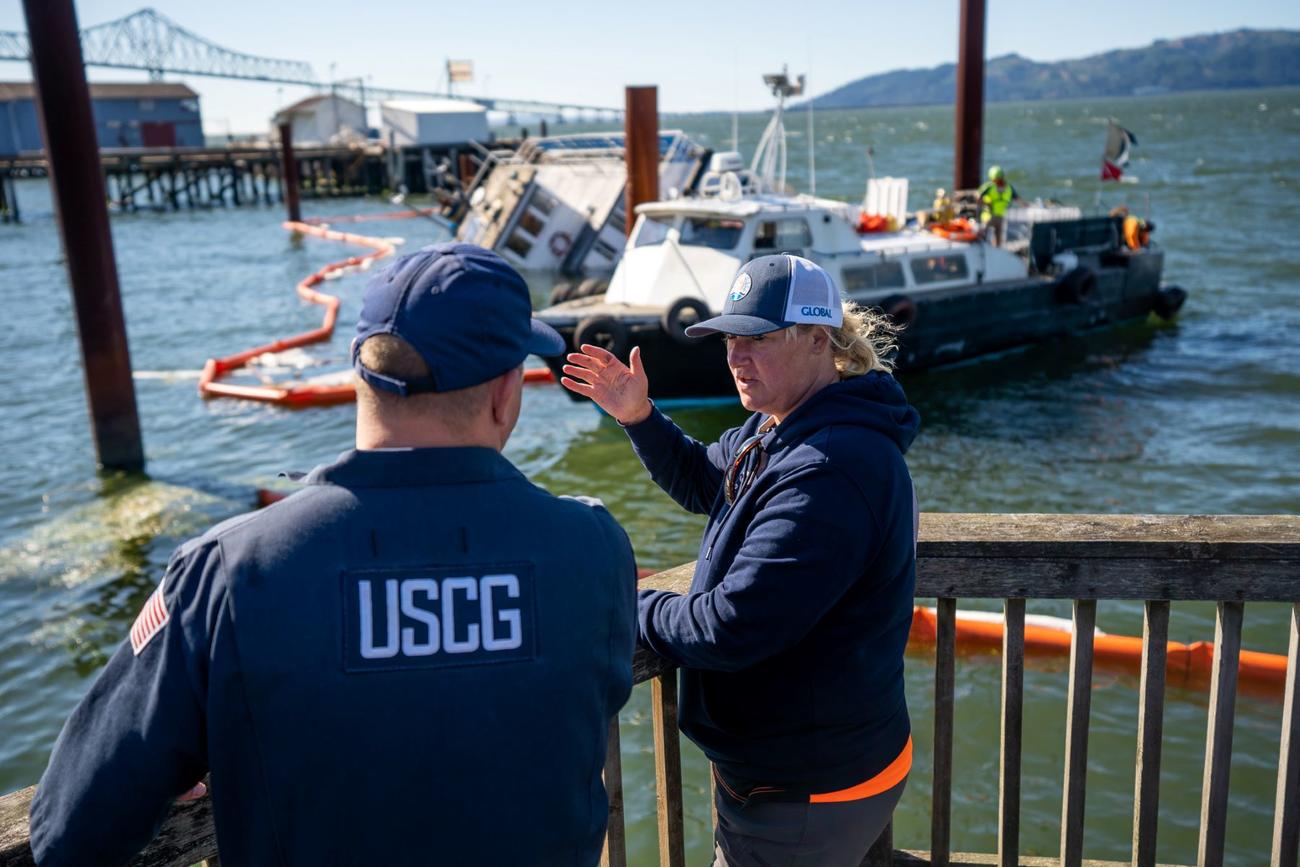
Over the past few years, U.S. Coast Guard Sector Columbia River has made an effort to crack down on “paper captains” along the Oregon and Washington state coasts.
Under federal law, U.S.-flagged vessels must be under the command of U.S. citizens. The Jones Act, established in 1920, is intended to protect American shipping, fishing and other maritime industries from foreign competition.
A “paper captain” is a term given to an American citizen who is listed as the captain of a U.S.-flagged vessel, when in reality, a foreign national masters the boat.
Lt. Cmdr. Colin Fogarty, the enforcement chief for the sector in Warrenton, helps carry out defense operations and enforce laws and regulations on the Oregon and Washington state coasts. Since coming into his role, Fogarty said he has made addressing Jones Act violations a priority.
“Since I reported here 2 1/2 years ago, and I became aware of these violations, I have made it my personal mission to zealously enforce these laws,” he said.
Last month, Fogarty and his crew identified and penalized another paper captain, totaling the number of Jones Act violations within the past three years to over 10.
“Jones Act violations are notoriously difficult to prove,” Fogarty said. ” … It’s taken a lot of work. I’m very proud of our team.”
On Oct. 19, Coast Guard boarding officers conducted a safety inspection on an 89-foot fishing vessel near Westport, Washington. A conversation with the ship’s master quickly led officers to determine that the individual had limited knowledge about seaboard operations, Fogarty said.
The individual soon admitted to being a paper captain, Fogarty said, and the boat’s actual master — a foreign national — was issued a $3,000 fine. The penalty was later bumped to over $12,000 after it was determined that the man had previous similar violations.
About $60,000 has been collected by Coast Guard Sector Columbia River from Jones Act violators over the past three years.
Sector Columbia River has had more Jones Act violations, Fogarty said, than the rest of the Coast Guard combined over the last decade. Many of the paper captains are tracked down at the port in Westport.
Vessels and fishing fleets often pursue paper captains as a way to save money.
Despite a complicated process for determining what vessels may be using paper captains, the sector has found success in identifying perpetrators.
“We are batting a thousand,” Fogarty said. “For all the cases that we’ve sought, we successfully adjudicated all of them.”
The sector has developed its own working process for tracking and proving paper captains. Their efforts and tactics are being shared with other stations across the country, Fogarty said.
An attorney by trade, Fogarty said his legal work has helped him navigate the civil penalty process.
“Knowing how the legal system works is one thing, but getting out there and boarding these boats on the high seas, asking the hard questions, that’s a whole nother (thing),” he said. “It’s brains and brawn.”
Show Full Article
© Copyright 2022 Tribune News Service. All rights reserved. This material may not be published, broadcast, rewritten or redistributed.
Tags: Captains Coast Coast Guard Coast Guard News Cracks Guard Military Paper Working Warriors








